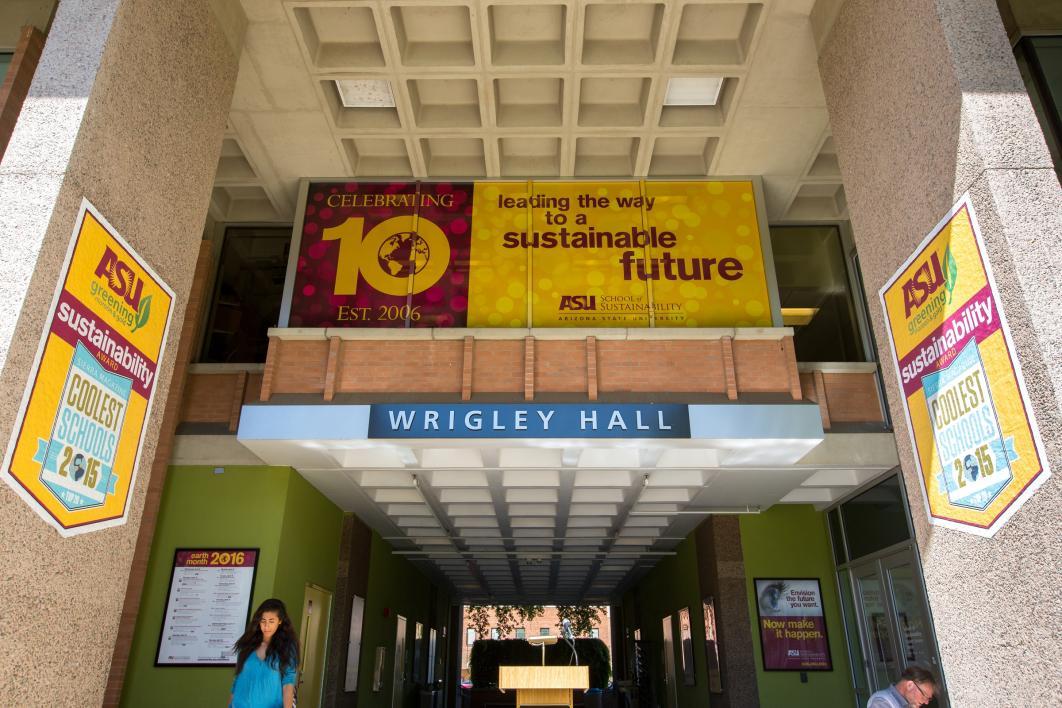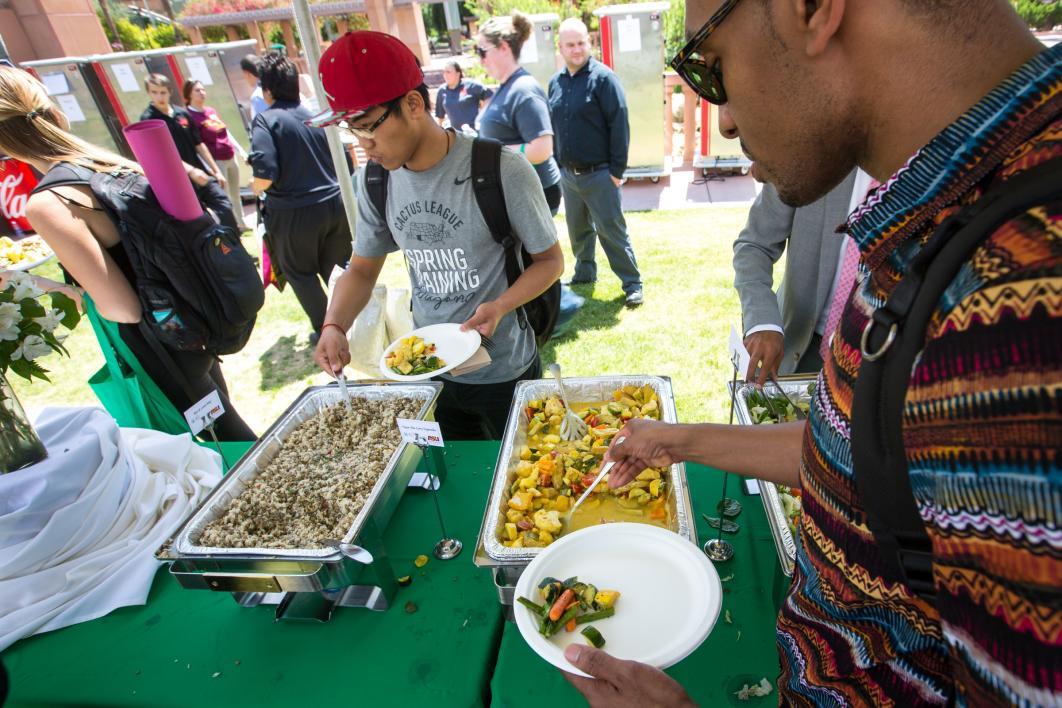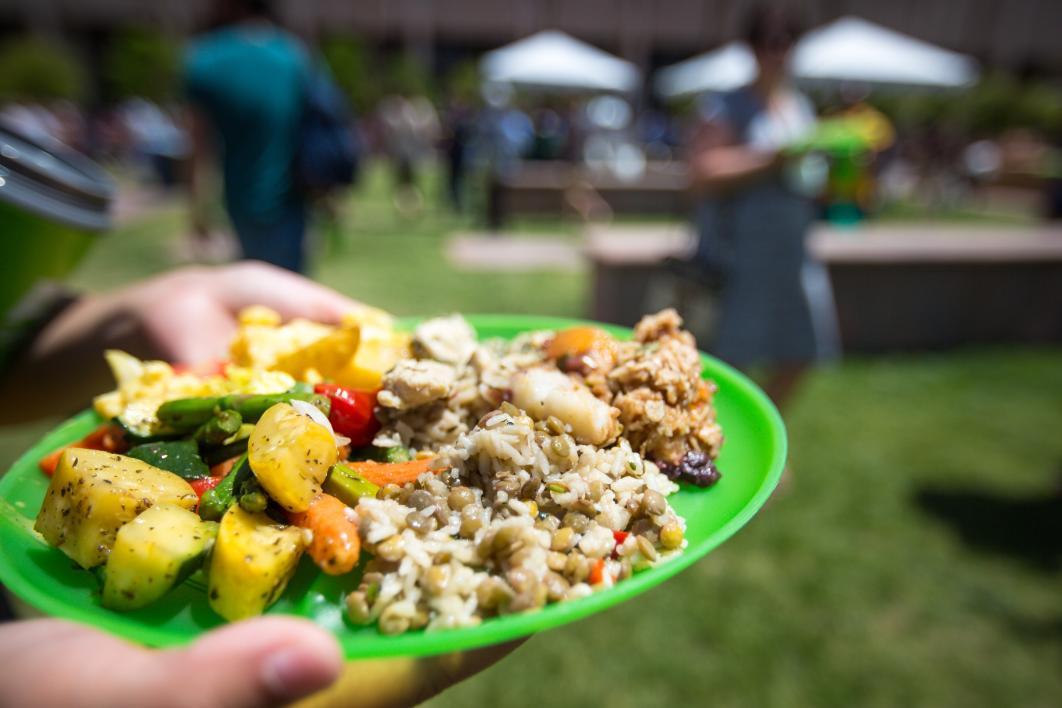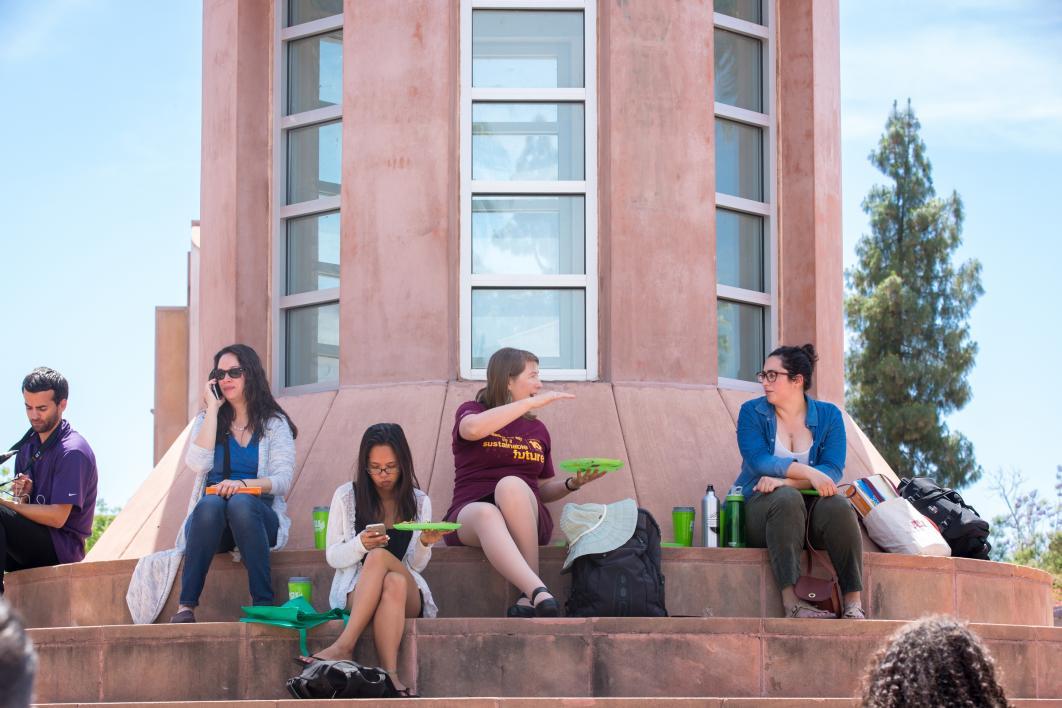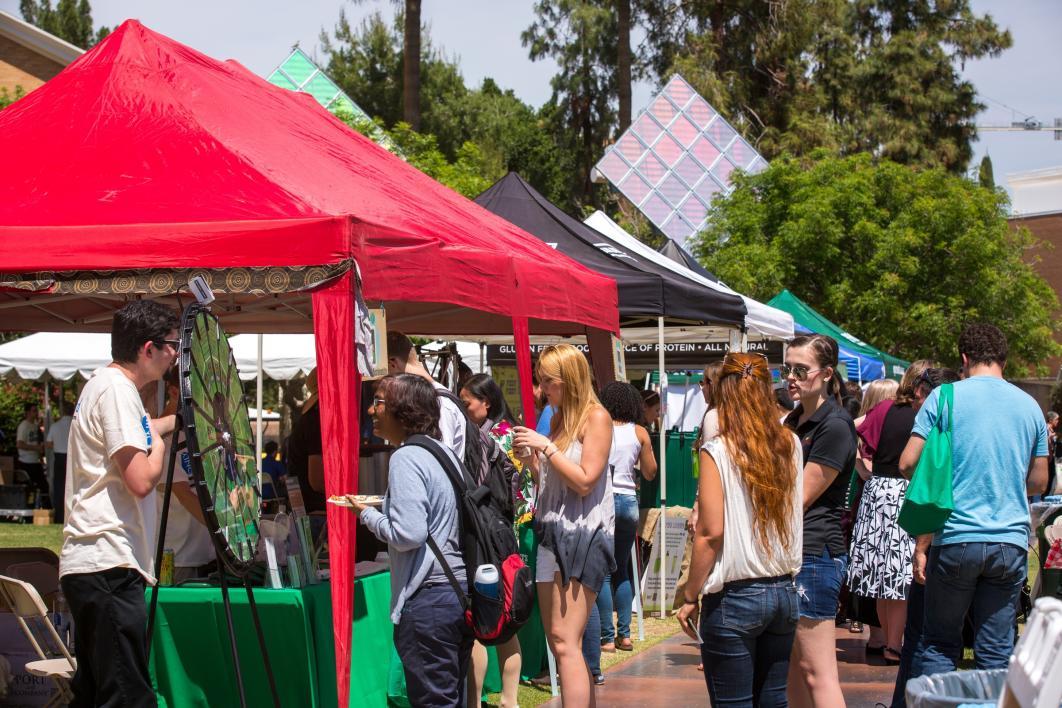It was 2008. Brigitte Bavousett stood in the office of U-Haul International president John Taylor, having just graduated from Arizona State University’s School of Sustainability.
“It was a very lonely graduation,” she says, noting that she was first — and only — in her class.
She was the company’s carbon-sequestration program manager in ’08, when U-Haul was just starting to implement a tree-planting program. The carbon-credit market was hovering in and out of existence and political conversations. At U-Haul, Bavousett researched forestation processes and nonprofit partnership options to help the company create a plan to reduce its carbon footprint.
After reams of research, Bavousett thought, “Let’s just get the trees in the ground and worry about the credit later.”
She stood in the office of a man responsible for 18,000 employees and $4 billion in annual revenue, took a breath and said, “These are my recommendations.”
“Let’s do it,” Taylor replied.
Since then, the partnership between U-Haul and the Conservation Fund and Tree Canada has resulted in more than half a million trees being planted, engaging 1.2 million customers. It’s still going strong today.
And that was how the School of Sustainability came out swinging with its first graduate. This week, it is celebrating its 10th anniversary as the nation’s first university granting degrees in sustainability as a stand-alone academic discipline. Now 143 universities teach a sustainability degree, according to Bavousett.
“It’s exciting,” said Bavousett, now senior student recruitment and retention specialist and an instructor in the School of Sustainability. “Arizona was first.”
Training for jobs that don’t exist — yet
In 2014-2015, more than 1,500 students were enrolled as sustainability majors and minors across business, engineering, sustainability, humanities and nutrition.
The Dow Jones Sustainability Indices are a sign it’s an important issue in the corporate world. Launched in 1999, the family of indices evaluates the performance of 2,500 companies based on an analysis of economic, environmental and social performance, assessing issues like corporate governance, risk management, branding, climate-change mitigation, supply-chain standards and labor practices.
“We’ve had a lot of really well-paying jobs from Dell and Intel and Goldman Sachs and Nike and Vanguard and Fidelity,” Bavousett said. “When you mention the Fortune 500 companies, they’re hiring our graduates for their sustainability reporting.”
Bavousett likes to tell potential students that the job they're going to get in 10 years may not exist yet.
Willingness to embrace change is part of why benefactor Julie Ann Wrigley has supported the school with her continued financial and personal investment.
“The only constant in life is change,” Wrigley said. “I would hope that (the School of Sustainability) continues to be willing to embrace change. Ten years from now I expect to see new issues and totally new technologies. The goals should continue to be around educating and participating in solving leading-edge, real-world problems.”
Hearing the job you’re going to get doesn’t exist now isn’t altogether reassuring when you’re young and deciding what to do with your life and education. Founding director Charles Redman said he is proudest of the graduates who took a chance and enrolled in the school 10 years ago.
“It’s exactly because of those early students at all levels who took a chance,” he said. “This isn’t a career that’s a category at job fairs. ... It’s their involvement that has made it work.”
The School of Sustainability’s undergraduate major-to-career match is nearly double the national average. According to a 2015 survey, 48 percent of the school’s employed undergraduate alumni are working in sustainability careers; the national average is 27.3 percent. The rate was even higher for ASU graduate students (89 percent) and doctoral alumni (86 percent).
Video from the 10th-anniversary celebration
Creating an impact
Before ASU’s School of Sustainability was created, you were either an environmentalist or pro-business. It was an adversarial stance with no middle ground. That has changed, Redman said.
“You can have both,” he said. “The issue is finding solutions that everyone can get behind, where no one can say, ‘This is a bad idea.’ We’ve been part of that.”
Not only are graduates creating an impact, but they are directing colleagues and peers towards ASU as a sustainability resource.
“We’re beginning to create a legacy among students and alumni,” Redman said. “That’s very exciting. ... We’re just getting old enough now. You can’t expect it in the first three or four years.”
He pointed to Bavousett’s success with U-Haul as the type of triumph the school is achieving by producing graduates who can recognize opportunities.
“These were impacts waiting to happen, and they were waiting for an entrepreneurial spirit to make them happen,” he said.
The institution has gained international recognition for its work, said sustainability dean Christopher Boone. It has become a model for sustainability programs around the United States and the world.
“We've had an almost constant stream of visitors here to the institute and the school to try to understand how we did what we did,” Boone said. “And I'm very proud of the fact that we've inspired so many other programs around the country and around the world. ... We need those global partners of universities and research centers around the world to have an impact on the scale that we think is necessary.”
The transdisciplinary approach draws from every field: biology, engineering, business, geology, law, planning, math and scores more. “We want to try them all,” Redman said. “This is about solutions, not disasters.”
This is an eminently practical school, focusing on practical solutions that succeed in the real world.
“In the beginning when this school opened, I was one of those 28 guinea pig grad students,” Bavousett said. “The school was teaching us all of the doom and gloom. We literally protested, after about a month. We said, ‘OK, we get it, there are horrible things happening. Start showing us the lights at the end of the tunnels.’ The school responded quickly, and all of our curriculum was very solutions-based. ... That’s the beauty here; the school really responds to student input.”
Looking forward
That solutions focus is one of the school’s features Boone is proudest of.
“What differentiates us, I think, from other institutions is that we have a very strong and firm commitment to solutions-oriented learning and research,” Boone said. “What this means is that in addition to generating knowledge, which is what society expects of us, we want to make sure that that knowledge is useful in the near to immediate term in order to address very key and urgent sustainability challenges. So we’d like to see knowledge turning into action.”

Founding director Charles Redman said he is proudest of the graduates who took a chance and enrolled in the school 10 years ago.
Photo by Charlie Leight/ ASU Now
What’s the school’s goal for the next 10 years?
“Getting more people in the world aware of this,” Bavousett said. “Just promoting awareness.”
Boone wants to see global outreach both through distance and online education, and through international partnerships.
“In the end, sustainability is a global issue,” he said. “We can be looking after things locally with the best of intentions, but we might be undermining the ability of people elsewhere around the world to achieve their own sustainability goals. Ultimately, the way that this is all going to work is if we can engage with partners across the entire globe. That's where I'd like to see us in 10 years.”
Join in the celebration
Festivities on the Tempe campus will mark the School of Sustainability's 10th anniversary throughout the day Thursday, April 14, including:
• Rescued-food feast: Noon-1:30 p.m. on Hayden Lawn. The school is doing its part to fight food waste by feeding 500 students, faculty and staff with a meal made from nutritious food that would otherwise be discarded for cosmetic reasons. Meals are limited to the first 500 people. Food-bank donations of canned food are requested.
• Kickoff Celebration at Wrigley Hall: ASU marching band at 1:15 p.m., remarks from ASU President Michael Crow, benefactor Julie Ann Wrigley and dean Christopher Boone at 1:30 p.m.
• Celebration of Sustainability @ ASU Festival: Farmers market from 1-3:30 p.m on Old Main Lawn. Booths with giveaways and demonstrations from 2-3:30 p.m.
• Other events include a lecture with food activist Michael Pollan (sold out), internship poster session and a community service project.
Details: sos.asu.edu/ten.
Top photo by Deanna Dent/ASU Now
More Environment and sustainability

ASU fire expert Stephen Pyne on learning to live alongside fire
Stephen Pyne is having a busy retirement. On top of caring for chickens, sheep and citrus on his urban farm in Queen Creek, Arizona, the Arizona State University professor emeritus is being called on…

New interdisciplinary research highlights wildfire impacts on water and ecosystems in arid regions
As wildfires increasingly threaten arid regions, a new conceptual framework developed by a team of researchers offers a fresh perspective on the relationship between fire, water quality and ecosystem…

Stanton urges bipartisan, national action on Colorado River water
Time is running out to determine the future of the depleted Colorado River, and any further delays in negotiating a deal could be catastrophic, according to U.S. Rep. Greg Stanton.Stanton, who…

